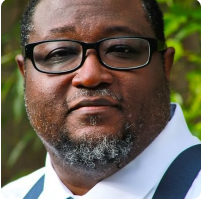The use of big words should not be an indication of quality writing. Incessant use of multisyllabic terminology within the context of a narrative has the potential to signify logorrhea. In short, don’t be douchetastic.
Douchetastic, in the context of this narrative, means, simply, don’t use words solely because they sound intelligent. Doing so indicates elitism. Elitists, with their inclination towards closed-mindedness, have fostered the division we see between those who debate the journalistic standard of writing on an eighth grade reading level and those who believe writers shouldn’t underestimate their audience. Intelligence need not be a hallmark of the exceptional writer. Intelligence can be normal, too.
When a society divides itself into the exceptional and the normal, it leaves itself room for excuses. These excuses show up in phrases like “Real people don’t talk like that,” “Them big words ain’t cool,” and “Only people with small minds use big words.” You’ll find the latter phrase in The Cosby Show episode embedded below.
In a society where we converse in 160-character texts and 140-character Tweets, concision and clarity are key. However, must we sacrifice language’s innate complexity for clarity of message? The two can coexist. When a thought is clouded by words planted just to make it sound good, the message loses its simplicity and its ability to impact the broadest possible audience. A simple, easy to understand message can contain complex language, though. Only in the case of a clouded thought do we get the following example of douchetastic writing:
Theodore Huxtable, used to receiving A’s in high school English Composition but getting D’s in his college-level course, is thrown by his professor’s feedback on an essay he wrote: “I have never read such muddled thinking in all my life. You use too many words to express your thoughts and don’t understand the words you use.” His younger sister and her friend try to help him through his mental block in the following scene. The transcript of the relevant portion follows.
Carolyn: What are you writing about?
Theo: You wouldn’t understand. It’s college-level material. It’s not for infants.
Rudy: It was a haunting, cloudy day – one that conjured up images of destiny. Huh?
…
Carolyn: It sounds like you’re trying to impress your teacher with big words. Well, that never works.
Theo: How do you know?
Carolyn: My dad’s an editor of a newspaper. He always tells the new reporters when you write, keep it simple. Only people with small minds use big words.
If only people with small minds use big words, are college English professors small-minded? If so, why are we sending our children off to universities to be taught by small-minded people? As adults, the supposed mentors of young people and models of proper behavior, our actions should align with our teachings. We are teaching our children to value education, so we must value it ourselves. Valuing education includes teaching children the value of a well-placed phrase or well-chosen big word. We have nothing to fear from language, only from its improper use.


No comments:
Post a Comment